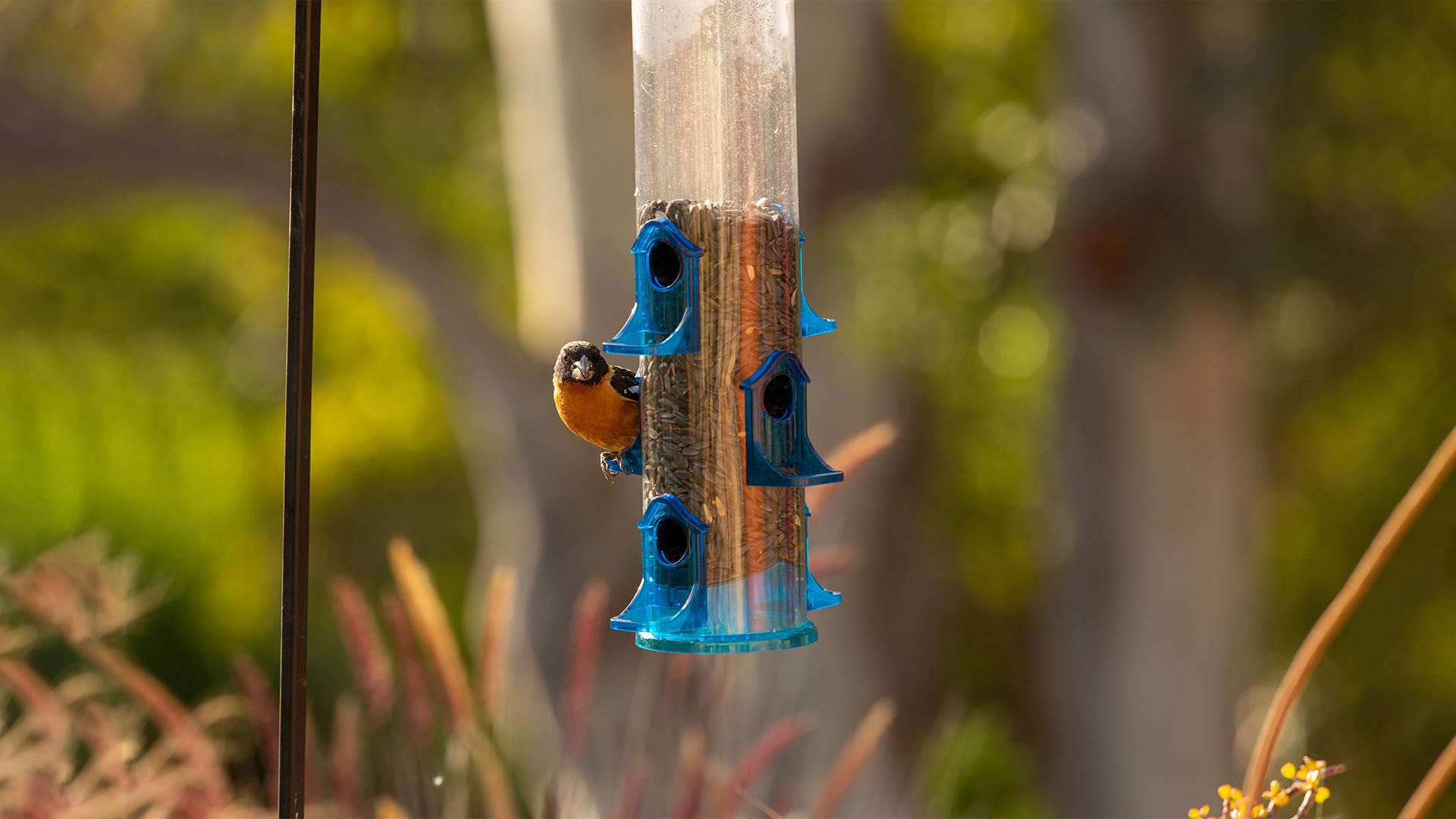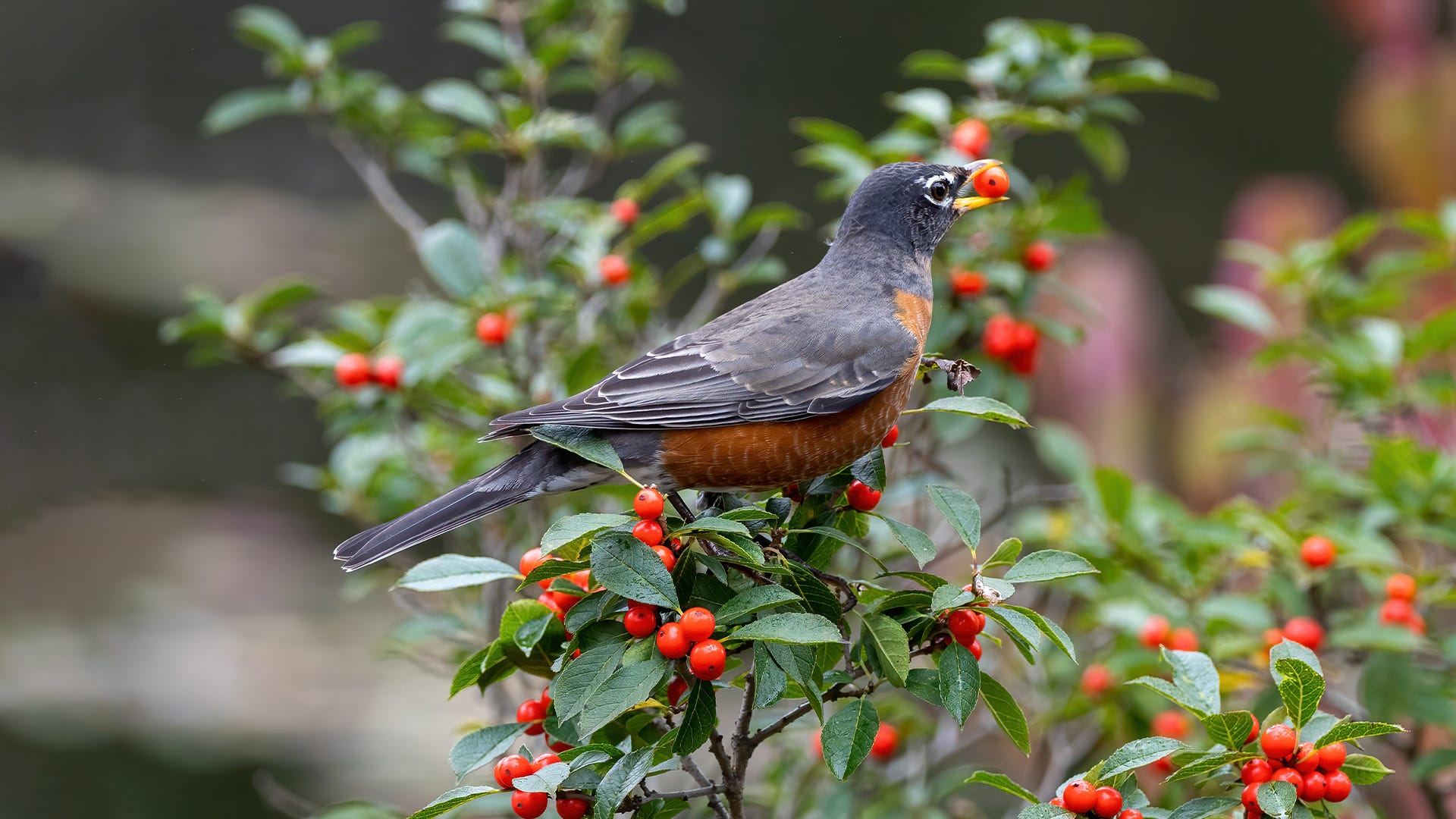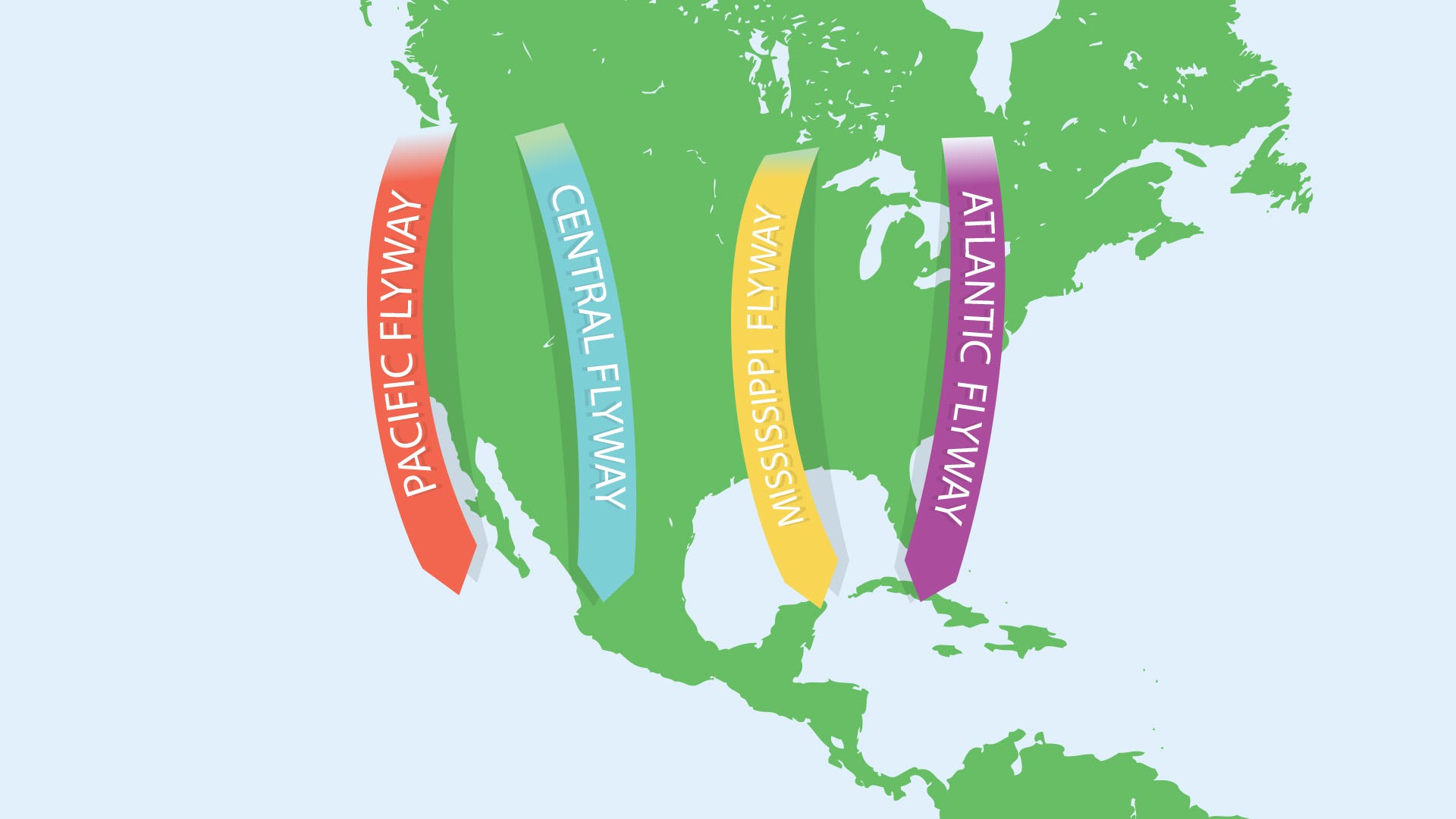
The paths followed by migratory birds in North America can be grouped into 4 general “highway”-type systems, called flyways.
The flyways follow the topographical features of the United States in a north-to-south direction. The main flyway routes depend on the boundaries on either side. Food, shelter, and an abundance of water make these routes ideal for birds that are just passing through.
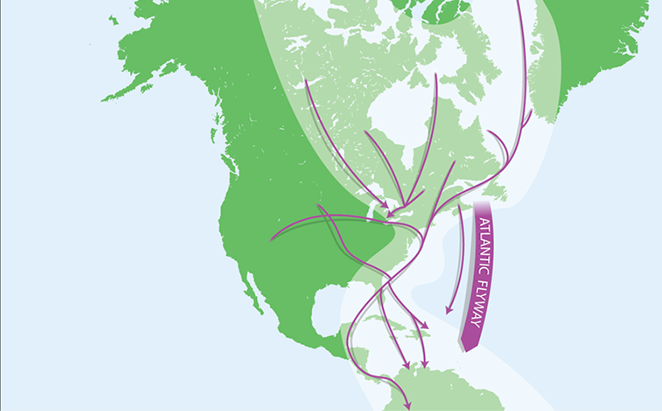
The Atlantic Flyway
The Atlantic Flyway follows the eastern coast of the US from the Bahamas to the tip of Maine, with major migration routes intersecting in Southern South Carolina and the Delaware Bay.
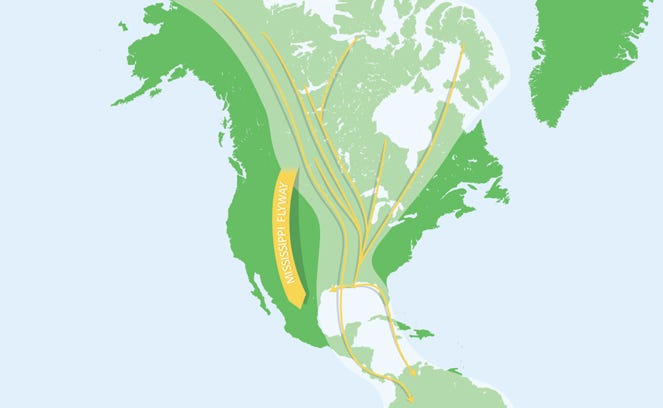
The Mississippi Flyway
You can think of the Mississippi Flyway as one big funnel, with the bowl extending upwards and outwards from the intersection of the Mississippi and Missouri Rivers, and the narrow part following the path of the Mississippi towards the Gulf of Mexico.
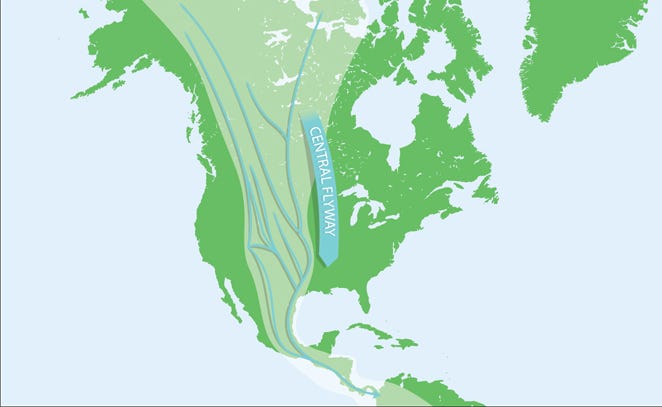
The Central Flyway
The main route of the Central Flyway follows the east side of the Rocky Mountains from Canada to Southern Colorado, where it moves across Oklahoma and Eastern Texas to continue down the Texas Gulf coast into Mexico. A second, smaller artery follows the west side of the Rockies and intersects with the main route in Northern Texas.
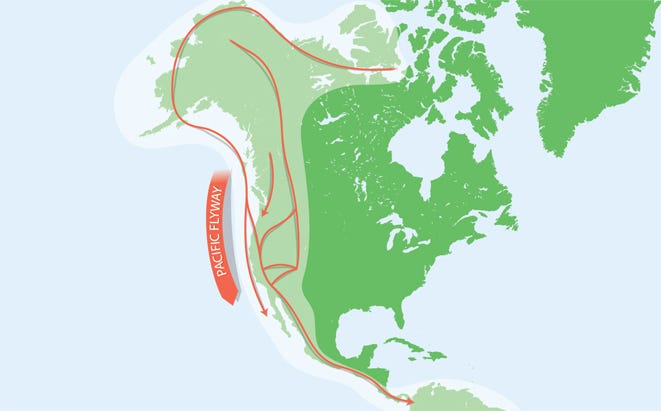
The Pacific Flyway
The Pacific Flyway hugs the Pacific Coast, with a minor migration route right beside the western artery of the Central Flyway and intersecting in northern Oregon, central California, and the California-Mexican border.
Some people still follow the old myth that if you keep your bird feeders hanging past Labor Day, birds will not migrate because they stay around and eat the food you supply. We encourage you to keep your feeders out and full since in actuality you are providing birds the food and fuel that are necessary for their migration trip.






